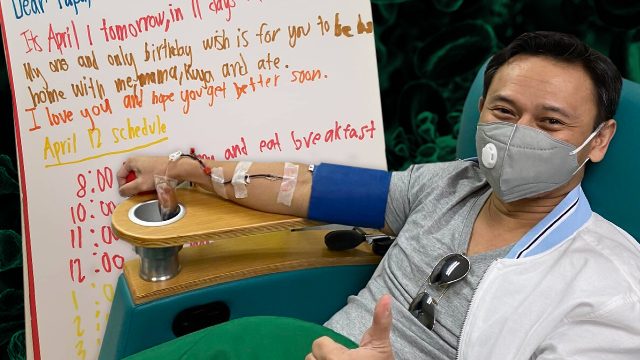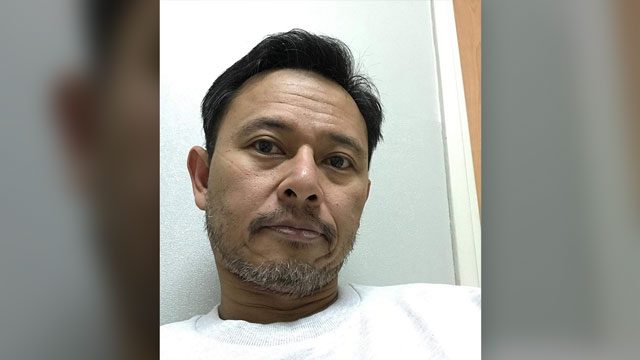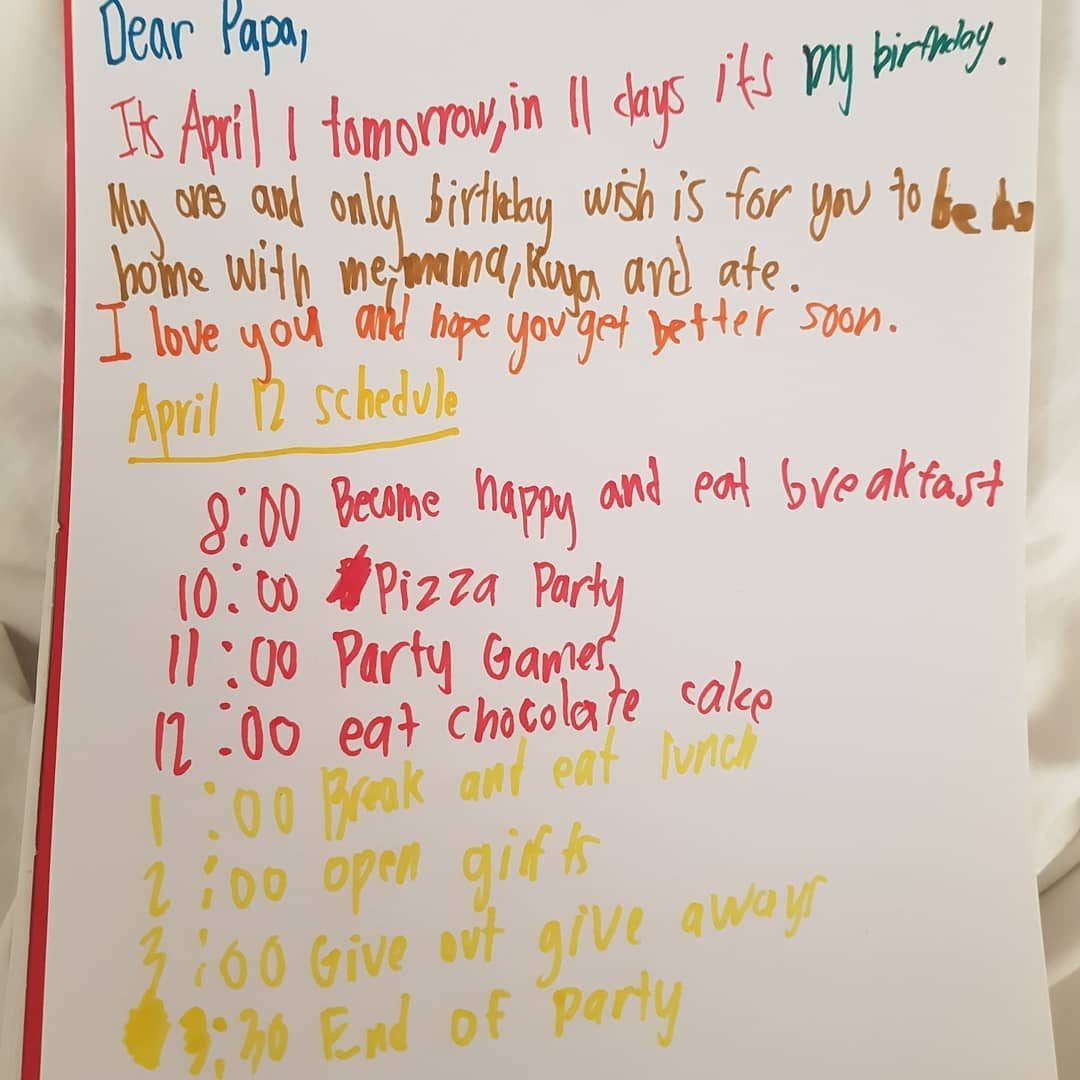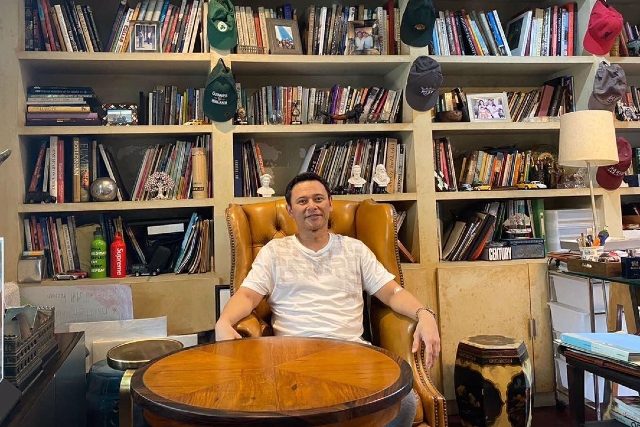SUMMARY
This is AI generated summarization, which may have errors. For context, always refer to the full article.


I got my test results on March 26, after taking the test on March 16.
I took the test because I started exhibiting symptoms on March 15, when I woke up slightly feverish and with a lot of the reported symptoms of COVID-19 – body pain, sore throat, cough, diarrhea, and shortness of breath. I immediately assumed I had the virus and self-quarantined in a separate room away from my wife Tootsy and the kids.
Late in the day of March 16 after taking the test, we found out that our colleague Senate Majority Leader Miguel Zubiri tested positive for the virus. This further convinced me of the big chance that I had also contracted it, because Senator Zubiri and I were together in the Senate and in functions the week before.
After many days of feeling bad, it was no surprise to get the official test results that I was COVID-positive that 26th of March. Not surprising, but still quite a stunner when you are told you are postive for the virus.
Thoughts went racing through my head – of mortality, of having young children, and wishing to see them pass through life’s milestones down the road. There was an activation of one’s fight-or-flight response for sure.
On the day I tested positive, some doctor friends recommended I go the hospital to take X-ray tests of my chest and lungs.
Results were not good as pneumonia appeared, and my lungs had also appeared with a lot of white spots – indicating the virus’s presence. That’s when it sunk in that this could be a lot worse than I anticipated or felt. Thoughts of intubation and being on a ventilator flashed through my head.
Treacherous virus
For 36 hours after my results, my family pleaded with me to enter the hospital and check in, per the doctors’ advice. I was initially reluctant but eventually relented after I was told that the virus is a treacherous one or ‘traydor’ (traitor) in the vernacular – one day you feel well and are breathing normally, the next day you are short of breath and in need of oxygen.
Thus began my hospital journey. We were told there were no rooms available in St Luke’s BGC but that I could stay in the emergency room (ER), while waiting for a regular room.
So I was placed in a makeshift corner of the ER where I stayed for 4 days waiting for a regular room. The room hardly had natural light and had grey concrete walls, which partly dictated the mood for those 4 days of testing my heart, lungs, and what have you.

Doctors prescribed a battery of drugs, which in retrospect, I realized were quite strong, perhaps indicators that I had underestimated the depth and strength of the virus. The much bandied hydroxychloroquine (a known treatment for malaria and lupus) was prescribed with its attendant risks to heart health; as were lopinavir and ritonavir, which is a known medicine for HIV patients.
The drugs prescribed proved effective, as every day the doctors said I was showing improvement. I was also thankful that I embarked on a healthy diet starting January 1 this year and had lost 10 pounds, and that I was in reasonable health, playing basketball in various leagues. This, no doubt, helped me fight off the virus.
My spirits were buoyed by the show of support from friends and family through thousands of messages by phone or social media. There were also gifts of food and home-cooked meals (no disrespect to hospital food). (READ: The risks we cherry-pick in a time of crisis)
Most importantly, there were letters from my wife and kids and people saying I was in their prayers. When you are down, there is nothing like tens and hundreds of your friends and school co-parents praying for your recovery. I thank the Lord for I felt his intervention through friends’ and strangers’ acts of kindness.
From Netflix to meditation
Those many hours in the hospital, initially spent on social media platforms and Netflix, gave way to more silent and meditative moments where I would ask God what he wanted me to do, and me asking him to point me in the right direction. This episode has definitely strengthened and regenerated my faith and my conviction.
I am thankful to my love and rock – my wife Tootsy, who was there every day to cheer me up, along with our kids, with daily care packages of food and handwritten letters from our kids. Their love, I leant on every single day, never wavering and perpetual.

I spent another 4 to 5 days in a regular hospital room – which was a welcome change. One that had a window with natural light, a television, a warm shower, which were absent in the ER. Again, the treatments prescribed were all effective and I improved every day. My doctors told me it was just a matter of time before they sent me home. They just needed to have negative results from the latest COVID-19 swab tests.
A few days ago, I got that result and my doctors sent me home. Going home was pure joy, although again, I had to self-quarantine for 14 days to protect my family and the househelpers.
You appreciate the simple things you take for granted, as I sipped homemade hot chocolate and calamansi juice and ate warm pandesal while looking at the sunset. How we take some things for granted, it occurred to me. (READ: Diary of a Filipina who survived coronavirus in Berlin)
Courage of health workers
All the while in my hospital stay, I received the most professional assistance from my doctors and nurses, and I am eternally grateful to these brave courageous men and women.
In my daily conversations with them, I learned that theirs was not an easy life: one nurse told me that his colleagues were being discriminated against in their localities and were being kicked out of their boarding homes, and some no longer went home and stayed in the hospital or nearby housing. Some did double duty in other hospitals because they were short of qualified staff.
Those were just some of the stories which make up the human tapestry of our health professionals. I would go home and celebrate our youngest child’s birthday with him, whereas they faced an uncertain future with the risk of coronavirus staring them in the face EVERY SINGLE DAY.
I thought of how brave and undervalued these people are in our society. I thought as a public servant about how we need to invest even more in our health system, as we see how different health systems all over the world cope with varying degrees of success with the virus.
A city like New York City, with the most number of billionaires in the world, had a hospital and health system stretched to the limit with people being turned away from hospitals, and crucial equipment like PPEs or protective equipment and respirators in short supply. The irony of it all. (READ: Dear Manila, lessons on the coronavirus from New York City)
The realization is that the choices made by leaders matter so much in times like these.

A few days after leaving the hospital, I am now back working from home and looking for solutions to the problems ahead.
I thought: we need to prepare our health system for the peak of the virus. We need to make sure that our citizens manage to eat and exist day to day under the lockdown in Luzon. We need to ensure the sustainability of businesses and jobs and industries amidst all the uncertainty.
This is our generations’ war, and unlike past wars, we are not called upon to bear arms and confront death every day like our grandparents’ generation. (READ: What the Philippine economy could be like after the coronavirus)
We are simply called upon to sacrifice our many freedoms and stay home with our families. It’s not easy, but keeping things in perspective, it’s not terribly difficult either. It is a test of our fortitude.
It is also a test for our leaders. And I have no doubt that if we work with each other, we will pull through. – Rappler.com
Senator Sonny Angara has been a senator of the Republic of the Philippines since 2013 and previously represented the province of Aurora from 2004 to 2013. In his 16 years as a legislator, he has sponsored or authored more than 200 laws, particularly on education and employment.
Add a comment
How does this make you feel?





There are no comments yet. Add your comment to start the conversation.